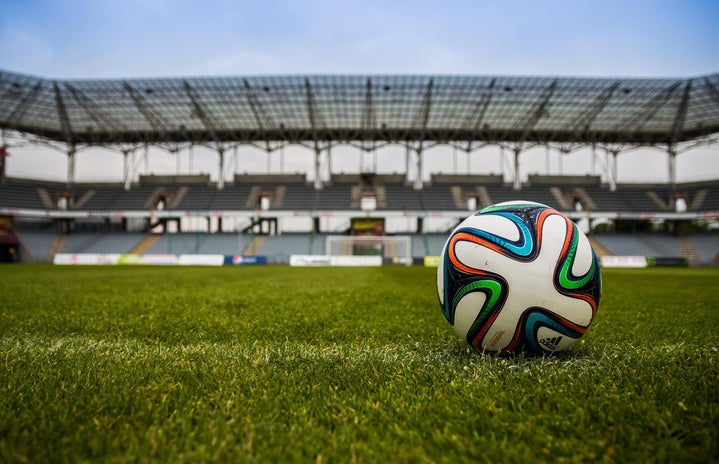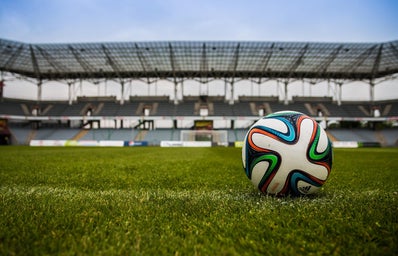After watching Untold: Hope Solo vs. U.S. Soccer on Netflix, I have many conflicting feelings. The documentary gave great insight into who Hope Solo is as a person, player, and teammate, but that was about it. It was very one-sided, and left me questioning the truth in every regard.
Growing up, I had loved and admired Hope Solo. She was, after all, the best goalkeeper in the nation. She was unbeatable, and a force to be reckoned with. Her determination and skill was out of this world. Any opposing team going against her knew that they weren’t going to score — at least not easily. She led the United States women’s national soccer team (USWNT) to many wins, and had an impressive streak of shutouts throughout her career. However, as good of a player as she is, it doesn’t take away from all the wrongdoings she has committed.
The documentary starts off by showing all the challenges and obstacles Solo faced in her early childhood to young adult years. I was brought to tears multiple times after hearing about her father and her lack of family. You really understand how soccer was her life and her everything; it was her one constant and the thing that brought her closer to her father. She was reunited with him after finding him unhoused while she was at soccer practice, and that ultimately led to her decision to stay in Washington and play for the Huskies. It was at the University of Washington where she made the switch from forward to goalkeeper. She was told that if she wanted to go far, she had to become the best goalkeeper, and so she did just that. It makes me wonder, if she had honored her verbal commitment to the University of Virginia, would she have made the transition to goalkeeper, and then to the National Team?
The first controversy that broke out was when Solo was the starting goalkeeper in the 2007 World Cup, beating Briana Scurry, the veteran goalkeeper. Solo had a shutout sweep all the way until the semifinals, when the controversial decision was made to bench her, and have Scurry play. This is still looked at as one of the biggest mistakes; many think that if Solo was in goal, they would have won. When the news broke that it was actually her fellow teammates, Kristine Lilly and Abby Wambach, that pulled the strings to have this switch, a hurt Solo in a TV interview broke the cardinal rule. Even if there is a player to blame, you never speak ill of one of your teammates. After all, you win and lose as a team. After her barrage on Scurry, Solo was iced out of the team, and everyone turned their backs on her. She paints her past teammates as the enemy, and claims they were mean people and bullies. I do find it quite strange that other players have never spoken out and shared this similar opinion. Maybe it isn’t as black and white as Solo paints it out to be.
Next in the documentary, we get into the infamous assault charges brought to Solo by her half sister and nephew. She told this story differently than I’d ever heard it before. Solo states that she was being assaulted by her nephew, and said that if he didn’t get off of her, she would punch him and her sister. She then did just that, and was arrested, however the charges were dropped in 2018. Originally, I was under the impression that Solo started attacking them, and it was reported that “Hope Solo is going psychotic.” Once again, we are left questioning what truly happened.
Lastly, there is light shed on her termination from the U.S. Women’s National Team. She stated that it was over her request to obtain equal pay for the women’s team. She was one of the original people to spearhead the movement to stop the inequality of pay for women. After her termination, she really started the battle, as she had nothing left to lose. Yet once the active members started their own lawsuit and got the pay they deserved, Solo said that they failed; that they settled and didn’t actually get the equal pay they say they did. Once again, the truth is clouded, and I am left unsure of what to believe.
I do find it very telling that none of her past teammates, except her childhood best friend and Husky teammate, would speak in or be a part of this film. Leaving us with only one side of the truth and a very biased tale, at times I felt like I was being gaslit and everything I once believed was being refuted. After watching this film, I am left with even more questions, and it doesn’t seem like I will be getting the answers anytime soon.
Overall, I do think this documentary is worth the watch. Although it is a bit misleading and does not necessarily have the most subjective takes, it does give insight into the remarkable Hope Solo. I would just recommend not taking everything said at face value. However, at the end of the day — all controversy aside — Hope Solo still is and will remain the best goalkeeper ever, a feat on its own.


